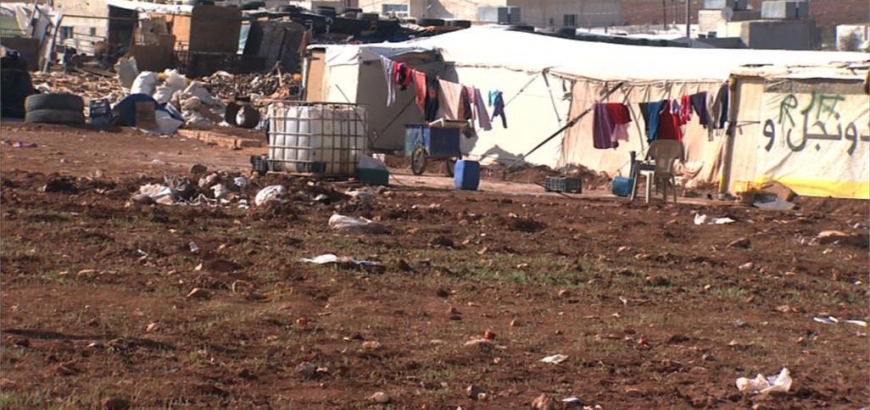A report published on Monday by the Jordanian newspaper Al-Ghad found that Syrian refugees in Jordan did not want to return to their country, despite the difficult life they endured and the many hardships they faced, along with the decreasing volume of aid.
The newspaper said that despite the difficult life of a refugee, an opinion survey carried out by the Nama Center for Strategic Studies, the results of which were announced at the end of last year, showed that over 50 percent of Syrian refugees in Jordan would not return to their country, with the lack of security and stability presenting the biggest barrier to their return.
According to the survey’s results, 33 percent of Syrian refugees said that they “would not return to Syria at all” and 24 percent said that they “probably would not return.” Most linked their unwillingness to return to the security and stability conditions in the country.
In this context, Al-Ghad highlighted the hardships of a Syrian, Ahmed, and his family, saying that displacement has been the main feature of Ahmed’s life since he fled to Jordan with his family eight years ago.
Ahmed, 27, lives with about 150 people, most of them relatives, in an informal camp set up in an area south of Amman in 2011. He estimates they have about 25 tents. Following a deal with a landowner in the area, he secured employment in agriculture.
Over the years, this family had moved in winter to the Ghor area to work in agriculture, but this winter they decided to stay in Amman. Ahmed says, “In Ghor, the agreement was that every hour was a Dinar, but I didn’t receive that.”
According to the newspaper, with the decreasing volume of aid that Syrian refugee families are receiving in Jordan, and the scarcity of work opportunities and the increase in prices, these families—specifically those living in informal camps—are subject to harsh living conditions. Despite this, the decision to return to the country is still a distant dream for Ahmed and all the camp’s residents.
The families cover their daily expenses with agricultural work, as well as receiving food and health parcels from the Jordanian Red Crescent, and vouchers for food purchases from the UNHCR. Despite the value of these parcels being half what they once were.
Heating in winter is one of the biggest challenges. To acclimate to the rising cost of fuel, families have started using plastic from agricultural ponds as heat insulation. Ahmed says, “We’ve borrowed plastic from farm owners to put on the top of our tents. The plastic absorbs the heat because of its black color, as well as the fact that it is same material as heat insulation.”
Although the camp residents have been unable to cope with the difficulties of life, the real challenge lies in the total absence of health and educational services.
Children are about 70 percent of the camp’s residents, and most of them were born in Jordan and have never known their country. Despite Syrian children having the right to education in the kingdom, the children of these camps have been deprived of education, whether officially by the Education Ministry’s schools or in the unofficial schools provided by UNICEF.
This article was translated and edited by The Syrian Observer. Responsibility for the information and views set out in this article lies entirely with the author.


